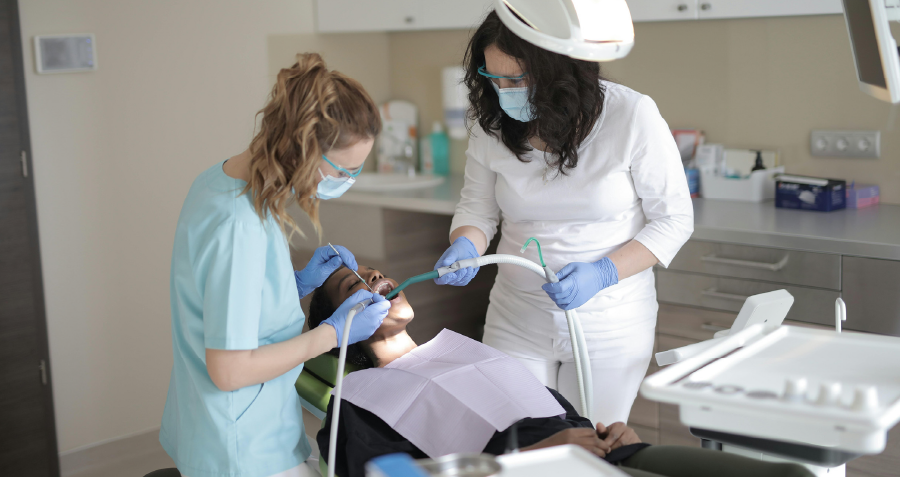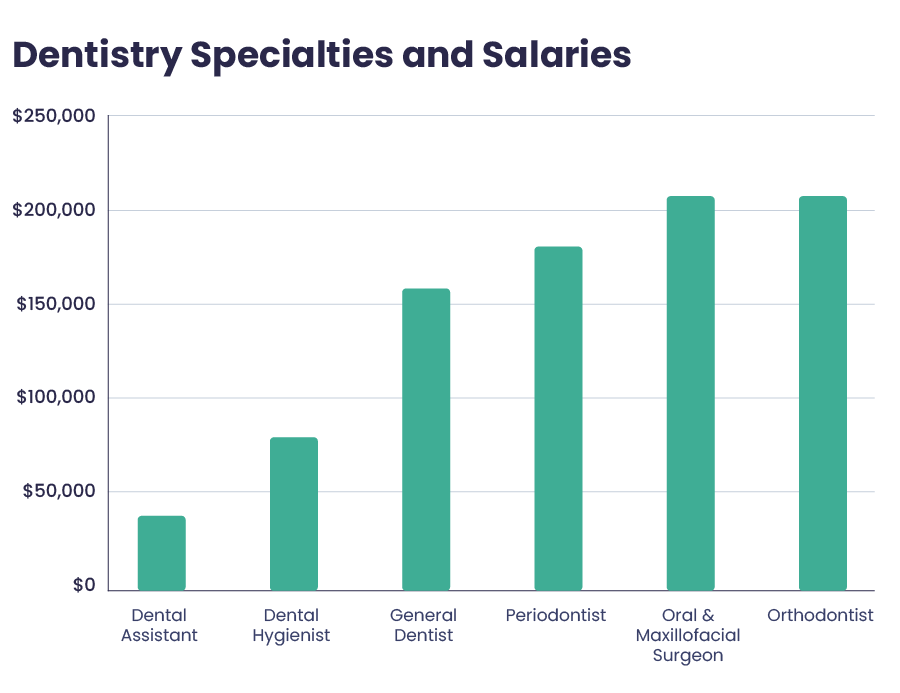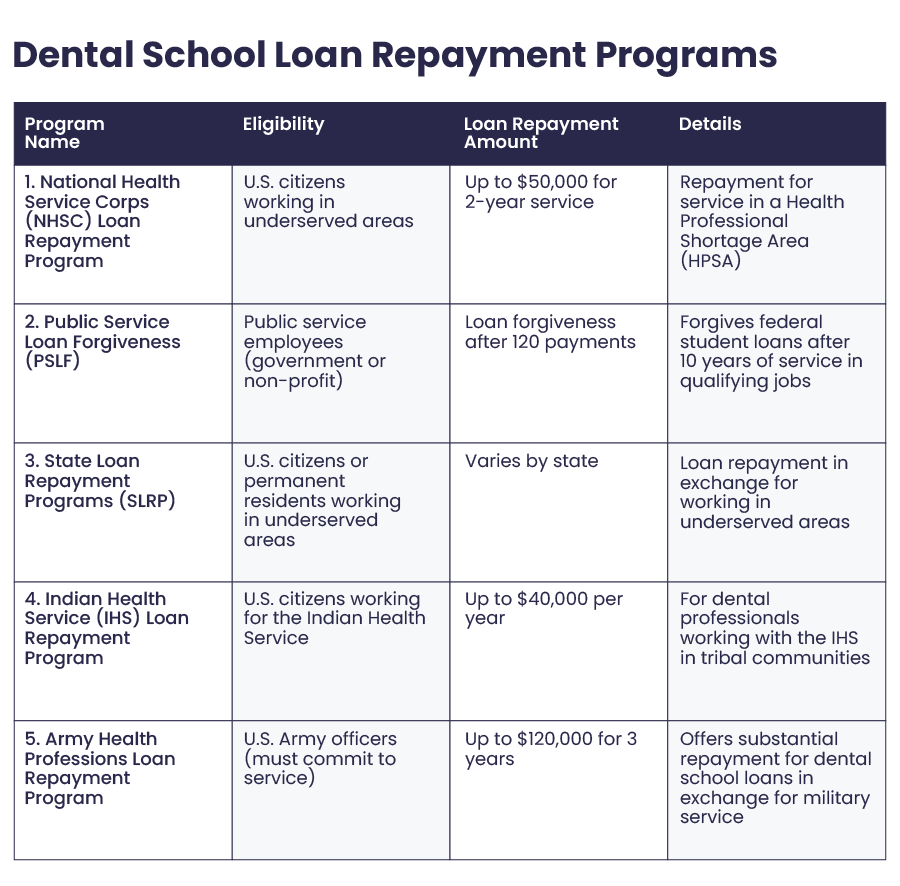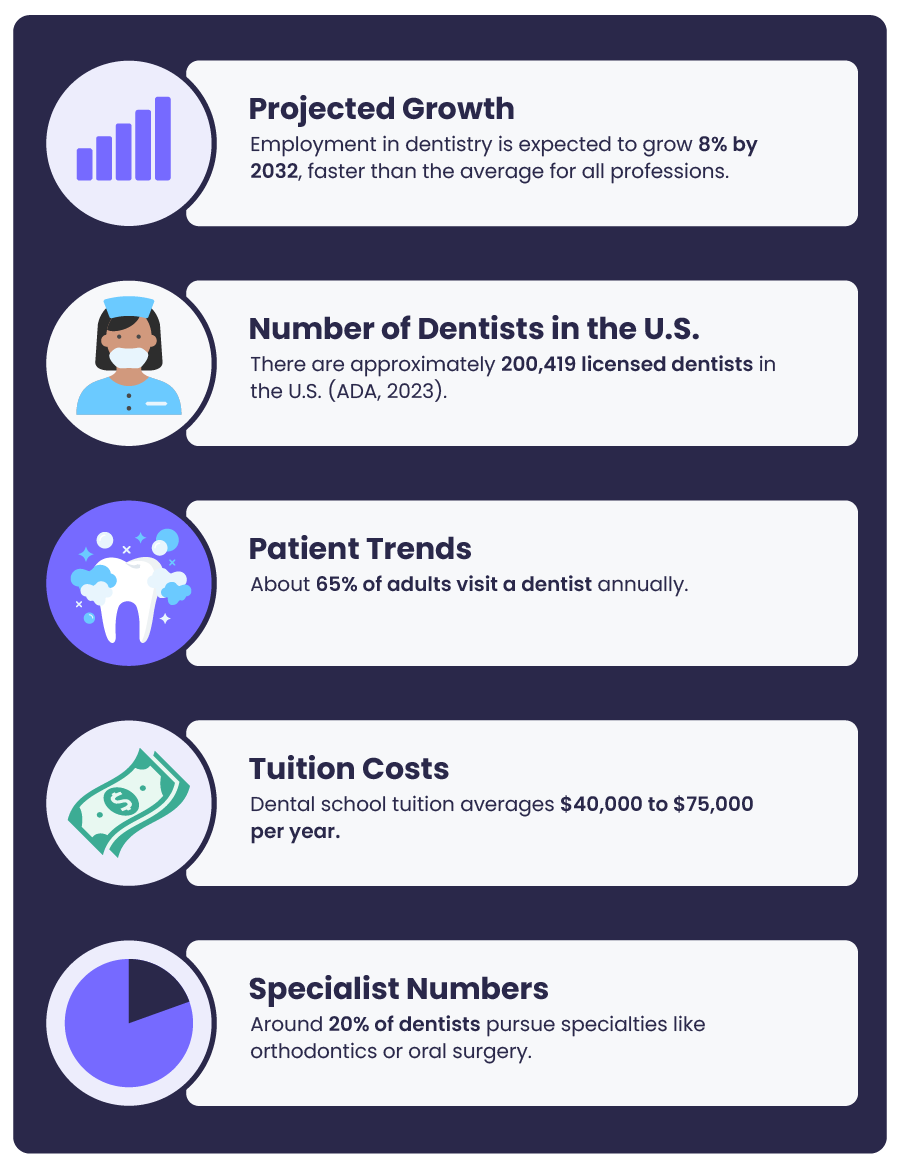
Are you considering a career in dentistry? Whether you're just beginning to explore options or already have experience in healthcare, the dental industry offers diverse opportunities suited to a wide range of interests and skill levels. From understanding potential salaries to exploring different paths, this guide will help you navigate your future in the dental profession.
What are the Different Dental Specialties?
Dentistry isn’t just about cleanings and fillings—it’s a dynamic field with numerous specialties to explore. Here are some options:
General Dentists: General dentists are the backbone of oral health, providing routine care such as cleanings, fillings, and preventative treatments. After dental school, general dentists must pass state licensing exams. Many opt for residencies to specialize in advanced areas like cosmetic dentistry.
Oral Surgeons: Specializing in complex surgeries such as wisdom teeth removal, jaw correction, and facial reconstruction, oral surgeons complete 4-6 years of residency post-dental school, and some also earn a medical degree (MD).
Orthodontists: Orthodontists focus on straightening teeth and correcting jaw alignment. After dental school, they complete a 2-3 year residency to become experts in using braces, aligners, and other appliances.
Periodontists: These specialists focus on gum health and dental implants. After dental school, periodontists undergo 2-3 years of residency, mastering advanced surgical techniques.

The Path to Becoming a Dentist
Becoming a dentist is an exciting journey that requires dedication, education, and hands-on experience. Here’s a clear, step-by-step guide to help you navigate the path to a rewarding career in dentistry:
-
Step 1: Earn a Bachelor's Degree
The first step to becoming a dentist is obtaining a bachelor’s degree, typically in a field such as biology, chemistry, or a related science. While specific majors aren’t required, it's essential to complete courses in subjects like biology, chemistry, physics, and math, as these are prerequisites for dental school.
-
Step 2: Take the Dental Admissions Test (DAT)
During your junior year of undergraduate studies, you’ll need to take the Dental Admissions Test (DAT). This exam is required for admission to dental school and assesses your academic readiness. A strong DAT score is crucial for standing out in the competitive field of dentistry.
-
Step 3: Apply to Dental School
Dental school typically requires four years of study. During this time, you’ll learn both the theoretical and practical aspects of dentistry, including anatomy, patient care, dental materials, and clinical practice. After completing your dental school program, you'll earn either a Doctor of Dental Surgery (DDS) or Doctor of Medicine in Dentistry (DMD) degree.
-
Step 4: Pass National and State Licensing Exams
After graduating from dental school, you must pass the National Board Dental Examination, which tests your knowledge of dental science and clinical practice. You’ll also need to pass your state’s licensing exam to become a licensed dentist, which may include both written and clinical components.
-
Step 5: Consider Specialization (Optional)
If you wish to specialize in areas like orthodontics, oral surgery, or periodontics, you’ll need to complete additional training through residency programs. These programs typically last between 2 to 6 years, depending on the specialty. Specializing opens up more opportunities for advancement and can lead to higher earnings.
-
Step 6: Begin Practicing Dentistry
Once you’ve passed your exams and obtained your license, you can start practicing as a dentist. Whether you work in a private practice, a hospital, or a public health setting, your career in dentistry is just beginning. You’ll also need to engage in continuing education throughout your career to keep up with new techniques, tools, and regulations in the field.
A career in dentistry is rewarding, but the cost of dental school can be intimidating. Fortunately, there are options to reduce costs and pay off debt faster, letting you earn sooner. Start with programs like HRSA for scholarships and loan repayment assistance, and explore other options below to help manage your expenses.
And when you’re ready, learn more about job hunting as a dental professional here.

Opportunities in Oral Health
The dental industry is expanding rapidly due to growing awareness of the importance of oral health. According to the U.S. Bureau of Labor Statistics, employment in dentistry is expected to grow by 8% from 2022 to 2032, outpacing the average for all occupations. This increase is driven by a rising demand for dental services, including preventative care and specialized treatments.

Salary Insights
- Dentist Salary: Dentists earn an average of $155,000 per year, depending on location and specialty.
- Dental Hygienist Salary: Hygienists earn about $77,000 annually, often with the flexibility to work part-time.
Dental Assistant Salary: Dental assistants make an average of $38,000 annually, which is an excellent entry-level salary in healthcare.
Conclusion
Dentistry offers a wealth of opportunities, from hands-on patient care to specialized surgical procedures. Whether you're looking to help others with preventive care or pursuing a path in complex surgeries, there’s a place for you in the dental field.
If you're ready to take the next step in your dental career, we can help you find the right opportunities. Visit ProfiHitch today to explore a wide range of dental jobs that match your skills and interests. Whether you're just starting out or looking to specialize, our platform connects you with top employers in the dental industry—helping you find the perfect fit and build a rewarding career.
Start your journey in dentistry today and make an impact on the future of oral health!



